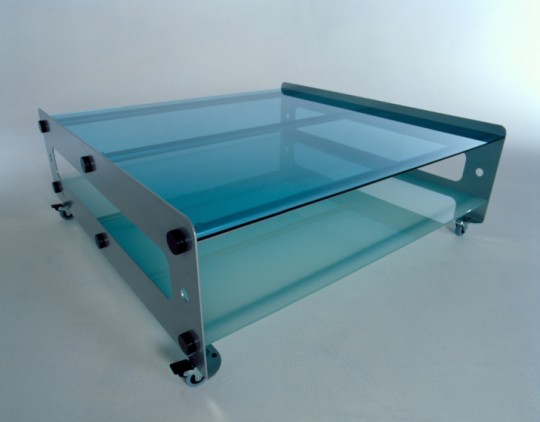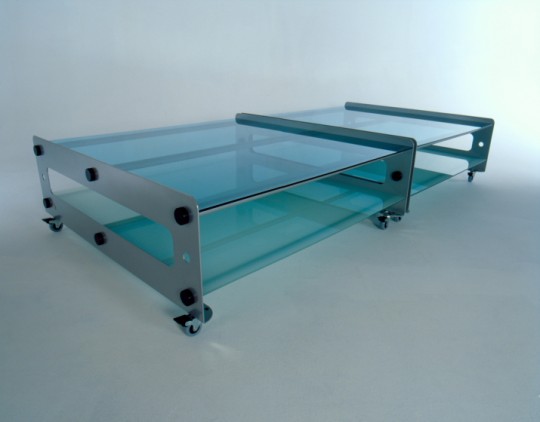Two years after the furniture show that changed the pace and demand of dahdah for the better – with clients aplenty pushing for commercial partitions, display stands and sound absorption panels – the trade show of 1999 hung over Dean Homicki like a storm cloud of harsh realization. Instead of lighting up sales and discussions with potential clients about his design service, dahdah was facing financial challenges from the classic designer conundrum: While he was creating a product, who would sell it? And while he was selling it, who would create new products?
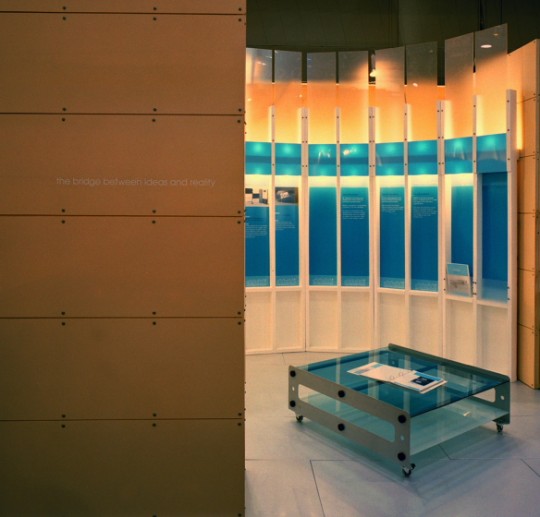
Another trade show, another stand fabricated by dahdah – ‘Options & Solutions at Designex – 1999 – Image by samkaranikos.com.au
Even through the most difficult point in his design career, Homicki stayed authentic to what he knew. In fact, he came up with a glass coffee table design for a number of banks that came in blue or green laminated glass. Resting low to the ground, they were interchangeable and could link together to form a longer, modular coffee table.
Using the same interchangeable spirit to create modular sets of stackable shelving units, the idea was a hit with architecture firms and private clients who wanted customized storage.
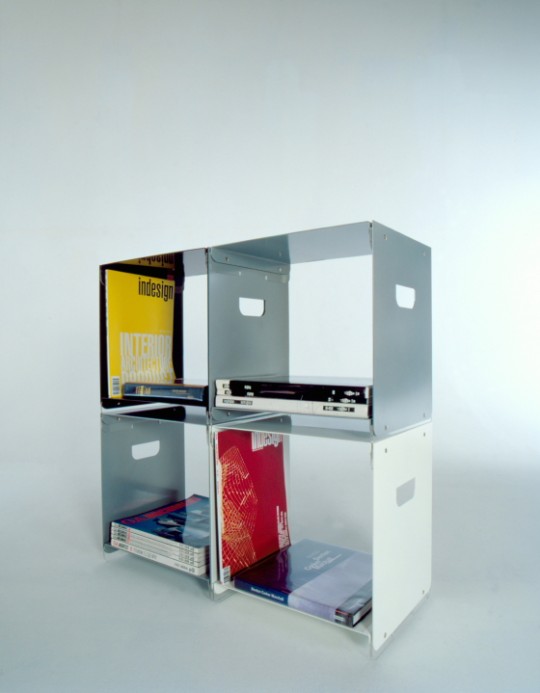
‘Modular, interchangeable, flatpak powder coated steel boxes- ‘SAM STACK’ for private dwelling by DAHDAH – Image by samkaranikos.com.au
But the underlying feeling behind residing at what felt like rock bottom was a conscious thought that shook Homicki to the core. As he recalls, “I don’t think anyone understood what I was trying to do. Was I selling a product? Was I offering a design service? Was I trying to sell to people that where soing what I was? I don’t think I was quite sure myself. All I knew was that I wanted to create and I wanted to make things that enhanced people’s lives, that were built for budgets, built to last, and built to serve the people.”
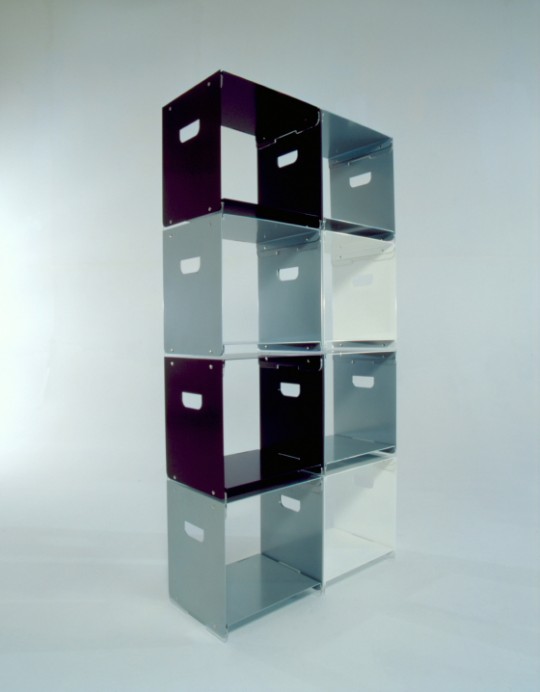
‘Just keep on stacking’ – ‘Modular, interchangeable, flatpak powder coated steel boxes- ‘SAM STACK’ by DAHDAH – Image by samkaranikos.com.au
This document ‘INTERCHANGEABLE SPIRIT’ is coauthored by Sonja Hall & Dean Homicki. It is free to copy, use and alter providing attribution and reference to deanhomicki.com.au is noted. ‘INTERCHANGEABLE SPIRIT’ – Dean Homicki – Designer, Entrepreneur, Mentor


